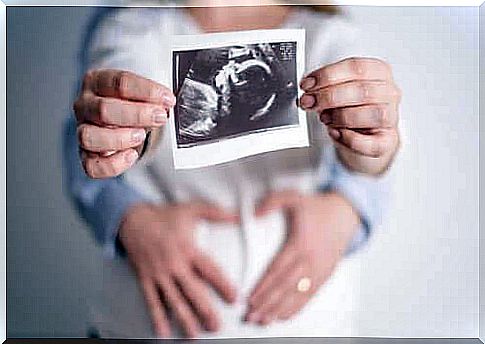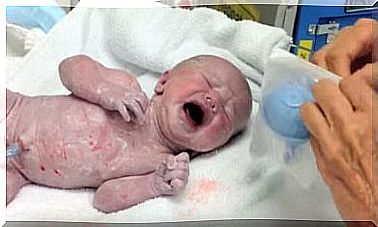Perinatal Psychology: What Do Unborn Children Feel?

You’re probably thinking: a fetus’ psychology ?! Perinatal psychology is a special field of study that studies the emotional bonds between a mother and her child before birth. It also looks at what a fetus feels or perceives when she is in the womb.
When we find out that we are going to be parents, we start to think differently. We become more careful with our habits so that the fetus can grow healthy and strong, we change our diet, are forced to change our sleeping habits, and so on.
We go to all examinations at the maternity care center and are attentive to all ultrasounds and tests. In short, we do our best to take care of all the physical aspects of our growing children. But… what about the psychological well-being of our fetus?
Perinatal psychology is a science that sets out to answer countless questions that parents ask themselves about what their unborn child feels and experiences. For example, can my child feel if I am angry? How does the baby feel during childbirth? Why does my child kick when I talk?
Perinatal psychology: How do children feel in the womb?
As I said, perinatal psychology deals with analyzing what a fetus can feel before birth. Infants have a fantastic perceptual ability when they are in the womb, and these translate into emotions:
The feeling of touch
Our children like when we caress them while they are still in the womb. The feeling of touch is the first to develop. This explains why our little ones react when someone touches or presses a pregnant mother’s belly.
However, according to a study conducted by the University of California, this is not true when it comes to pain. Feeling pain requires that certain brain centers develop that do not mature until the 29th week of pregnancy.

The hearing
Can relaxing classical music affect the fetus in the womb? After week 22, it probably can. This is when the fetus begins to develop its hearing. That said, the most relaxing sound for them is their mother’s voice.
At the end of the sixth month of pregnancy, many expectant mothers notice that their baby jumps when a door slams shut, for example. At the same time, the baby in the womb may be upset or calm based on the tone of voice we use to talk to them. In addition, they will soon learn to recognize our voice.
Do they know our feelings?
If you feel sad, your child will notice it – even if you do not cry or scream and you try to act as if everything is fine. Intense emotions, both positive and negative, affect our hormone levels. And these changes are noticeable to our unborn child.
When emotions are too intense, they can even affect the growth of the fetus. In addition, they can also increase a woman’s risk of giving birth prematurely.
Do intrauterine experiences have any impact on the baby’s life?
Various studies on human embryology have concluded that psychological activity exists during the last weeks of pregnancy. This confirms that the psychological development begins already at conception. What unborn children feel and perceive begins even before birth to influence their attitudes and expectations of themselves and the world that awaits them.
Therefore, an important part of the individual’s temperament and abilities begin to form during pregnancy. All of this happens while his or her various body parts are taking shape.

Our children are connected with us. Therefore, our emotions also affect them and leave an impression on their future personality. This does not mean that temporary feelings of stress will forever affect our children’s lives. However, deep and constant feelings of depression affect the child’s development.
At the same time, the role of a father is crucial during pregnancy. A caring and sensitive father constantly offers emotional support to his partner. In addition, it is important for fathers to interact with their unborn children to help them reach their maximum potential.









